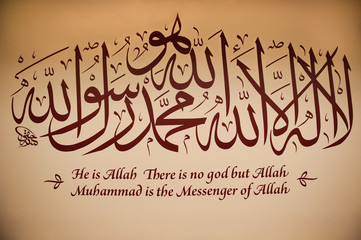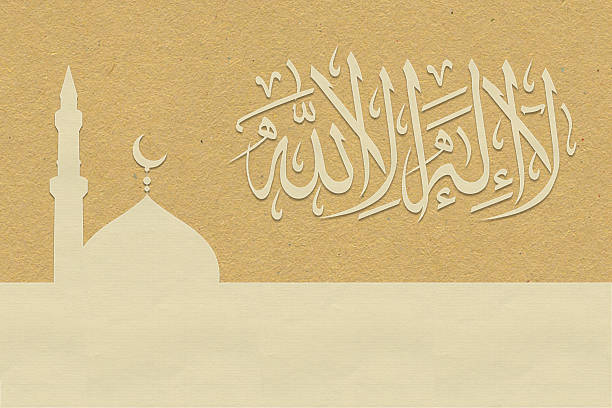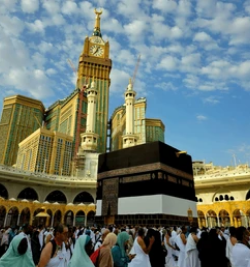
The Five Pillars of Islam: Foundation of Muslim Faith
A comprehensive guide to understanding the core practices that shape Islamic life and spirituality
Islam, one of the world’s major religions with over 1.8 billion followers, is built upon five fundamental acts of worship known as the Five Pillars of Islam. These pillars represent the framework of Muslim life, encompassing spiritual, physical, and social dimensions of faith. They serve as the foundation for a Muslim’s relationship with Allah (God) and with humanity.
Table of Contents
Shahada: The Declaration of Faith
The Shahada (الشهادة) is the Islamic creed and the first of the Five Pillars. It is a simple yet profound declaration that forms the foundation of Islamic belief:
“There is no god but Allah, and Muhammad is the Messenger of Allah.”
Meaning and Importance
The Shahada represents the core of Islamic monotheism (tawhid). By reciting this declaration with sincere belief, one enters the fold of Islam. It encapsulates two fundamental concepts:
- The absolute oneness of Allah (God)
- The acceptance of Muhammad (PBUH) as God’s final prophet
Historical Context
The concept of divine oneness was revolutionary in 7th century Arabia, which was predominantly polytheistic. The Shahada served as a unifying declaration for early Muslims, distinguishing them from other communities.

Beautiful calligraphy of the Shahada in Arabic

Salah: The Ritual Prayer
Salah (الصلاة) is the second pillar and refers to the five daily prayers that Muslims perform at prescribed times throughout the day. These prayers serve as a direct link between the worshipper and Allah.
Fajr
Before sunrise
Dhuhr
After midday
Asr
Afternoon
Maghrib
After sunset
Isha
Nighttime
The Structure of Salah
Each prayer consists of a specific number of units called rak’ahs, with prescribed movements and recitations:
- Takbir – Opening declaration of “Allahu Akbar” (God is Great)
- Qiyam – Standing position while reciting Quran
- Ruku – Bowing while glorifying Allah
- Sujood – Prostration, the pinnacle of submission
- Tashahhud – Sitting position for testimony
- Tasleem – Closing salutation
Spiritual Benefits
The daily prayers serve multiple purposes in a Muslim’s life:
- Constant remembrance of Allah throughout the day
- Discipline and time management
- Physical and mental purification
- Community bonding through congregational prayers
- Protection from sinful behavior
Zakat: The Obligatory Almsgiving
Zakat (الزكاة), often translated as “purification” or “growth,” is the third pillar of Islam. It is a mandatory charitable contribution that financially capable Muslims must pay annually.
Key Facts About Zakat
- Typically 2.5% of one’s savings and wealth
- Paid after one lunar year of ownership
- Only obligatory on wealth above the nisab (minimum threshold)
- Eight categories of eligible recipients
- Purifies wealth and soul
- Addresses economic inequality
Philosophy Behind Zakat
Zakat is not merely charity but an economic right that the poor have over the wealth of the rich. It serves as:
-
- A form of worship and obedience to Allah
- A means of wealth redistribution in society
- A purification of one’s wealth and soul from greed
- A social security system for the needy
- A deterrent against hoarding wealth
Impact on Society
The institution of Zakat has profound social implications:
- Reduces poverty and bridges wealth gaps
- Fosters empathy and social responsibility
- Creates economic circulation and stability
- Builds community solidarity
- Provides for public welfare projects historically
Sawm: Fasting in Ramadan
Sawm (صوم) refers to the obligatory fasting during the month of Ramadan, the ninth month of the Islamic lunar calendar. From dawn until sunset, Muslims abstain from:
Abstentions During Fasting
- Food and drink
- Sexual relations
- Smoking and other vices
- Negative speech and behavior
Positive Observances
- Increased prayer and Quran recitation
- Charity and good deeds
- Self-reflection and discipline
- Night prayers (Taraweeh)
Spiritual Dimensions of Fasting
Ramadan fasting goes beyond physical abstention:
- Develops God-consciousness (taqwa)
- Cultivates self-discipline and willpower
- Fosters empathy for the less fortunate
- Provides spiritual detoxification
- Offers opportunity for repentance and renewal
Laylat al-Qadr
Ramadan contains the “Night of Power” (Laylat al-Qadr), better than a thousand months in virtue. Muslims seek this night in the last ten days of Ramadan through intensified worship.
Hajj: The Pilgrimage to Mecca
Hajj (الحج) is the annual pilgrimage to Mecca that every physically and financially capable Muslim must perform at least once in their lifetime. It occurs during the Islamic month of Dhu al-Hijjah.
Rites of Hajj
The pilgrimage involves a series of rituals commemorating the trials of Prophet Abraham and his family:
- Ihram – Entering sacred state with special garments
- Tawaf – Circumambulation of the Kaaba
- Sa’i – Walking between Safa and Marwa
- Wuquf – Standing at Arafat
- Ramy al-Jamarat – Stoning the pillars
- Qurbani – Animal sacrifice

Pilgrims performing Tawaf around the Kaaba
Universal Aspects of Hajj
The Hajj experience embodies several profound messages:
- Unity of the Muslim ummah (community) regardless of race, nationality, or status
- Equality before Allah as all pilgrims wear simple white garments
- Historical connection to Abrahamic traditions
- Spiritual rebirth and forgiveness of sins
- Global gathering representing Islamic solidarity
The Profound Significance of the Five Pillars
Balanced Worship
The pillars cover all aspects of human existence – belief (Shahada), physical worship (Salah), financial worship (Zakat), self-discipline (Sawm), and communal worship (Hajj).
Spiritual Development
Each pillar serves as a means for spiritual growth, self-purification, and strengthening one’s relationship with Allah.
Social Cohesion
The pillars foster community bonds, mutual responsibility, and social justice within Muslim society.
Life Discipline
They instill regularity, self-control, and conscious living in a Muslim’s daily routine.
Universal Application
The principles are applicable to all Muslims regardless of time, place, or circumstance.
Holistic Approach
They address both individual piety and collective welfare, balancing personal and social dimensions of faith.
Addressing Common Misconceptions
“The Pillars are the entirety of Islam”
While the Five Pillars are fundamental, Islam encompasses much more including belief in six articles of faith, ethical conduct, family relations, business dealings, and social responsibilities.
“They are rigid and unchanging”
While the principles are fixed, Islam provides flexibility in practice according to circumstances (e.g., travelers may shorten prayers, the ill may be exempt from fasting).
“They are merely rituals without meaning”
Each pillar has profound spiritual, psychological, and social dimensions that transform both the individual and community when performed with understanding.
Conclusion: The Living Framework of Islam
The Five Pillars of Islam represent much more than a checklist of religious duties. They form an integrated system that nurtures faith, shapes character, and builds community. From the personal declaration of faith to the global gathering of Hajj, these pillars connect Muslims across time and space in a shared spiritual journey.
For over fourteen centuries, these practices have guided billions of believers in their relationship with the Divine and with one another. They continue to offer profound meaning and practical guidance in our modern world, demonstrating Islam’s timeless relevance to human spiritual needs.
Understanding these pillars provides valuable insight into Islamic spirituality and the lived experience of Muslims worldwide. They stand as a testament to Islam’s balanced approach to life, harmonizing individual devotion with social responsibility, physical practice with spiritual growth, and timeless principles with practical application.
Frequently Asked Questions
Can someone be Muslim if they don’t practice all five pillars?
While the pillars are obligatory, Islam recognizes that humans may struggle with full practice. The Shahada makes one Muslim, but believers should strive to fulfill all obligations as able. Temporary exemptions exist for valid reasons like illness or poverty.
Are the Five Pillars mentioned in the Quran?
While all five are established in the Quran, the specific compilation as “five pillars” comes from the Prophet Muhammad’s (PBUH) teachings. A famous hadith (prophetic saying) explicitly lists them together.
Do other religions have similar pillars?
Many religions have comparable practices (prayer, fasting, charity), but the Islamic pillars form a unique, integrated system specific to Muslim theology and spirituality. The combination and details differ significantly from other faiths.
“The Five Pillars are both the foundation and the flowering of Islamic faith – roots that ground and branches that reach toward the Divine.”